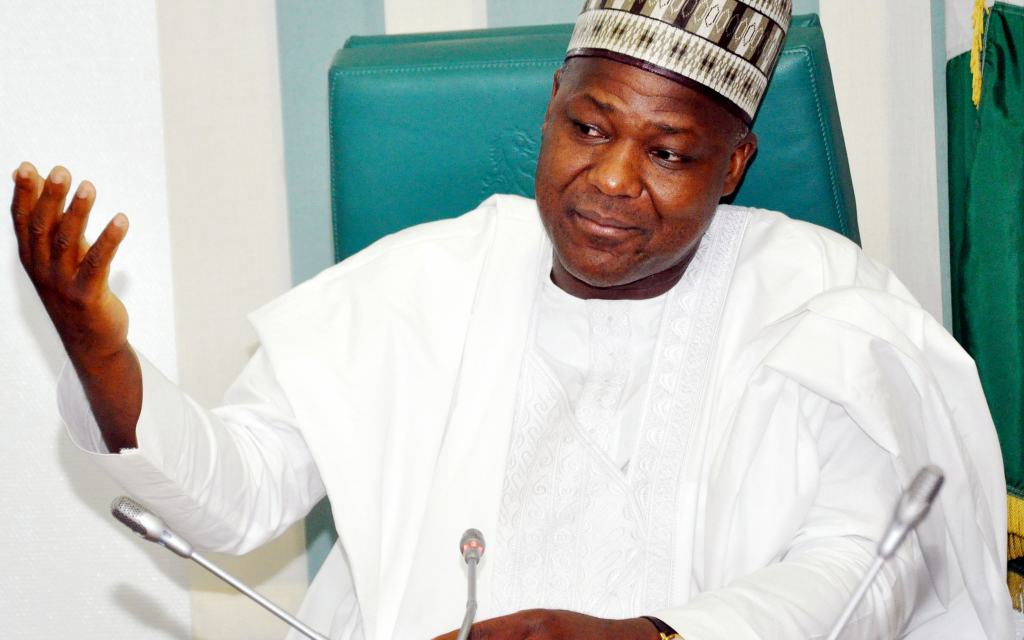
In a bid to avoid a repetition of budget fraud allegations which plagued the 2016 budget, the details of the 2017 N7.3 trillion budget would be debated and passed openly at plenary and during proceedings by the House of Representatives.
The Speaker of the House, Hon. Yakubu Dogara, in his welcome address at the resumption from the Christmas/New Year recess tuesday, reiterated the House’s commitment to the budget reform process.
He described the 2017 budget as a major tool to rejig the national economy.
“We must brace up and work assiduously and conscientiously to give Nigerians a budget that will not only lift us out of recession but kick start the needed expeditious journey into Nigeria’s prosperity. We pledge to reform the budget process,” he said.
“To this end therefore, we would ensure that the procedure and process of consideration and passage of the 2017 budget is transparent, inclusive and professionally handled. The details of the budget should be debated and passed in plenary to avoid those needless pitfalls that normally characterise the budget process,” Dogara added.
The practice before now was that budget details were debated at relevant committee levels, with each committee presenting recommendations to the House at the plenary.
Dogara, three principal officers, and some committee chairmen had been accused of budget fraud by a former Chairman of the Committee on Appropriation, Hon. Jibrin Abdulmumin, who accused them of inserting projects in the 2016 budget.
Each item in the 2017 budget would therefore be discussed openly at plenary for approval or rejection by the lawmakers.
The Speaker in his address harped on the need for passage of critical bills for economic stimulation, before active politicking starts.
He listed the bills to include Public Procurement Act amendment, Federal Competition Bill and Petroleum Industry Bill.
“The recent fiscal measures including import prohibition of certain items and the increase or decrease of tariff on some items should receive appropriate legislative scrutiny to ensure that the economy and the interests of our people are protected. We must ensure that we take no prisoners in accomplishing this task,” Dogara said.
Despite the assurances to the expeditious passage of the 2017 budget however, THISDAY gathered that the budget debate would not commence this week, and does not seem likely next week.
This is because lawmakers in the House and Senate are yet to receive the details of the budget, which must be made available before second reading.
Also, this week’s notice paper obtained by THISDAY does not have any matter on the budget scheduled.
Furthermore, a meeting of principal officers with chairmen of all standing committee to agree on guidelines and procedures for the budget process is yet to hold.
After the meeting, the Chairman of the Appropriation Committee is expected to release a memo to all lawmakers and committees on the procedures for submission of reports.
Meanwhile, the House has supported the position of the Economic Community of West African States (ECOWAS) to ensure a peaceful transition in the Gambia, and ensure that no leader in the sub-region engages in conduct prejudicial to the growth of Africa’s democracy.
ECOWAS leaders recently resolved to continue mediation in the Gambian impasse where President Yahya Jammeh said he would not handover despite losing the recent presidential election.
The Speaker of the House, Dogara, in his welcome address to lawmakers from recess yesterday, said the position of ECOWAS was reassuring.
“The situation in the Gambia constitutes a serious dent on the rising profile of the development of democracy on the African continent,” Dogara said, citing the recent case of former Ghanaian President John Mahama who just last week, handed over to President Nana Akufo Addo who emerged victorious at the country’s presidential election.
Dogara, in his address, also expressed worry at the spate of impeachment of the Speakers of Houses of Assembly, particularly arising from external influences.
Jigawa and Abia State assemblies recently impeached and replaced their Speakers.
The manner of removal of Speakers of Kogi and Edo States, last year, received national attention.
“While we recognise the constitutional right of the legislature to conduct its internal affairs including the right to hire and fire its leadership, it presents a different scenario where such leadership hiring and firing is rife with accusations and insinuations of external influence and also devoid of extant procedure,” Dogara said.
“Leaders everywhere can only function efficiently where there is certainty that commendation is the reward for good leadership and sanction the consequence of inept leadership,” he added.
END

Be the first to comment